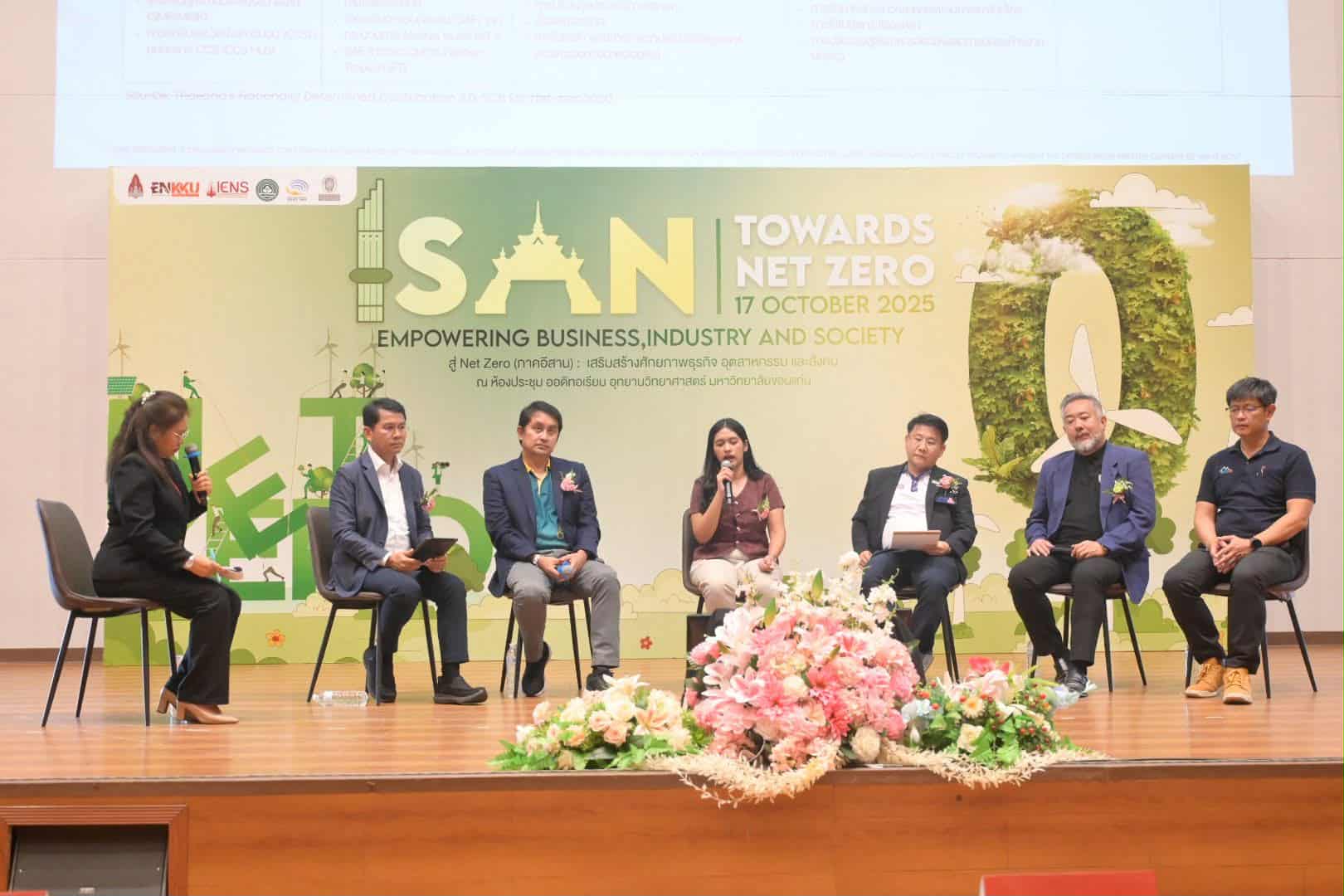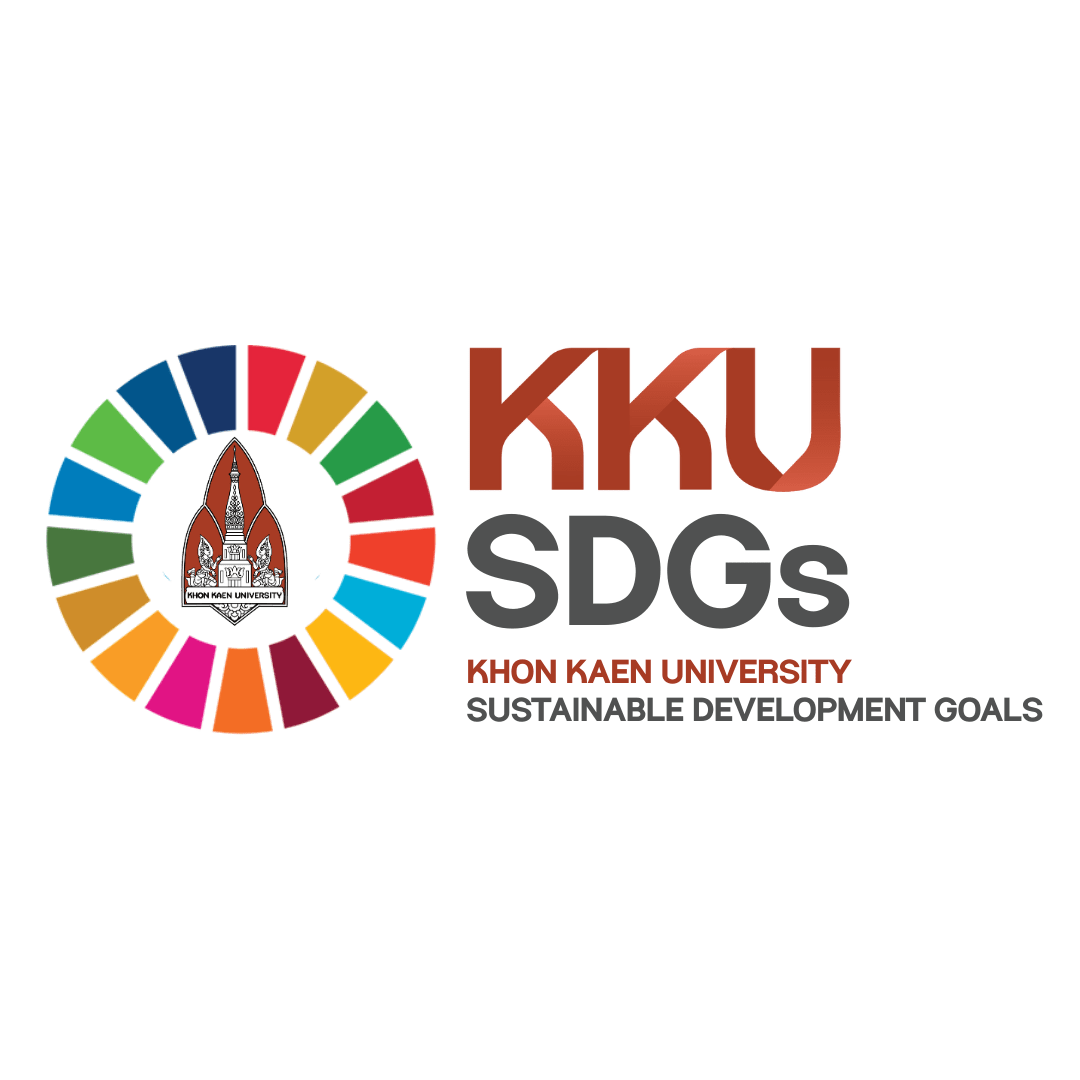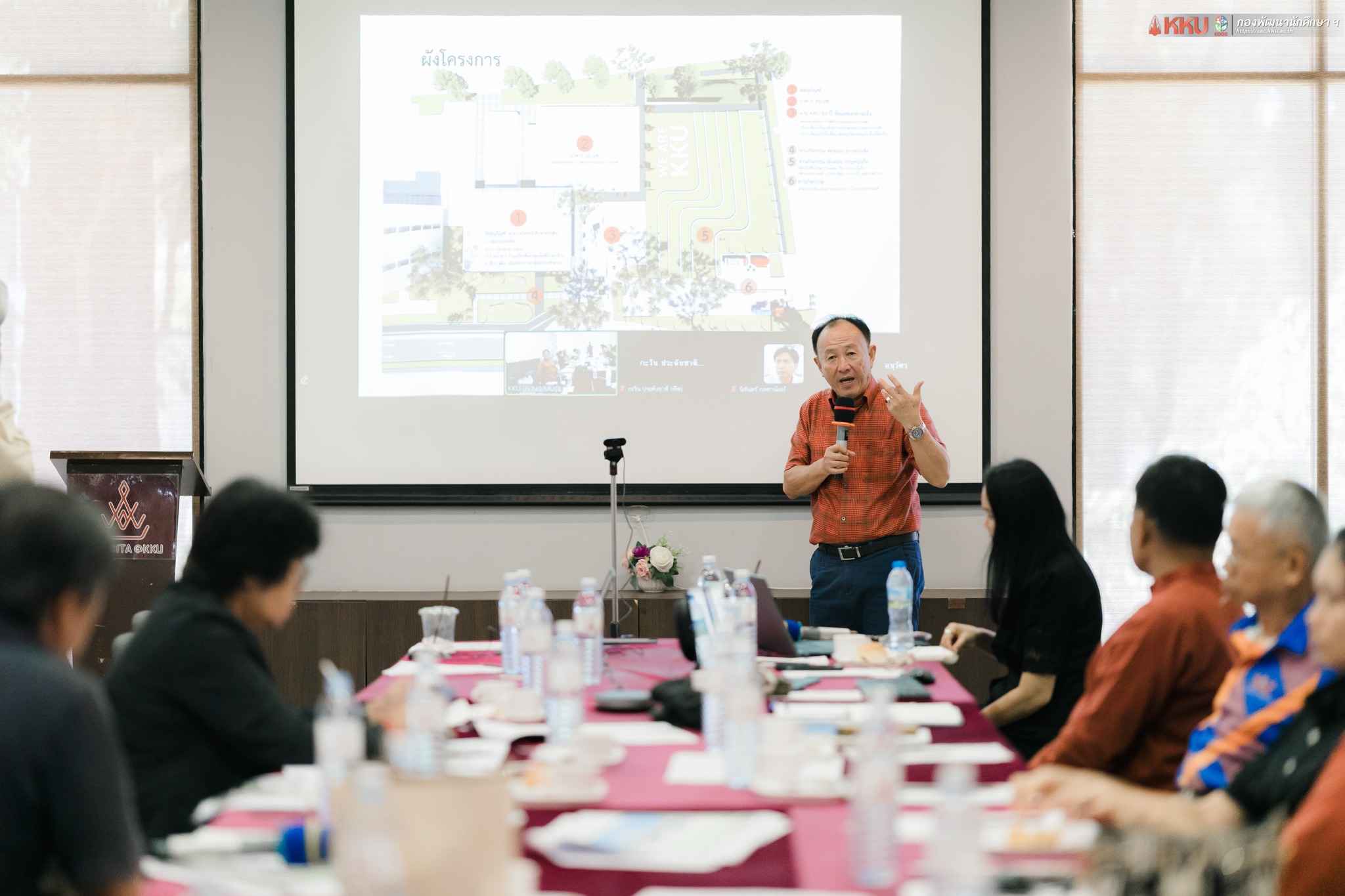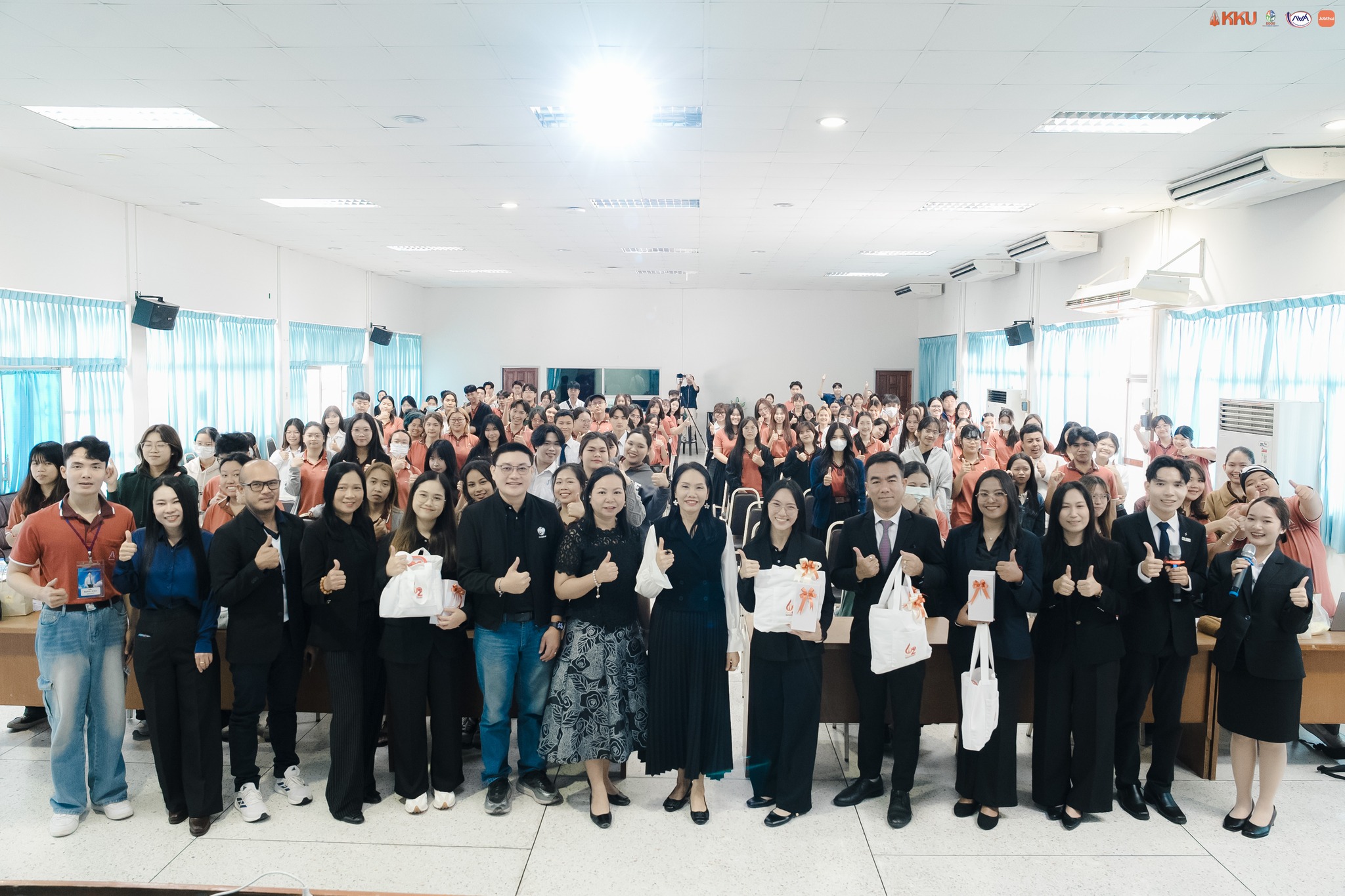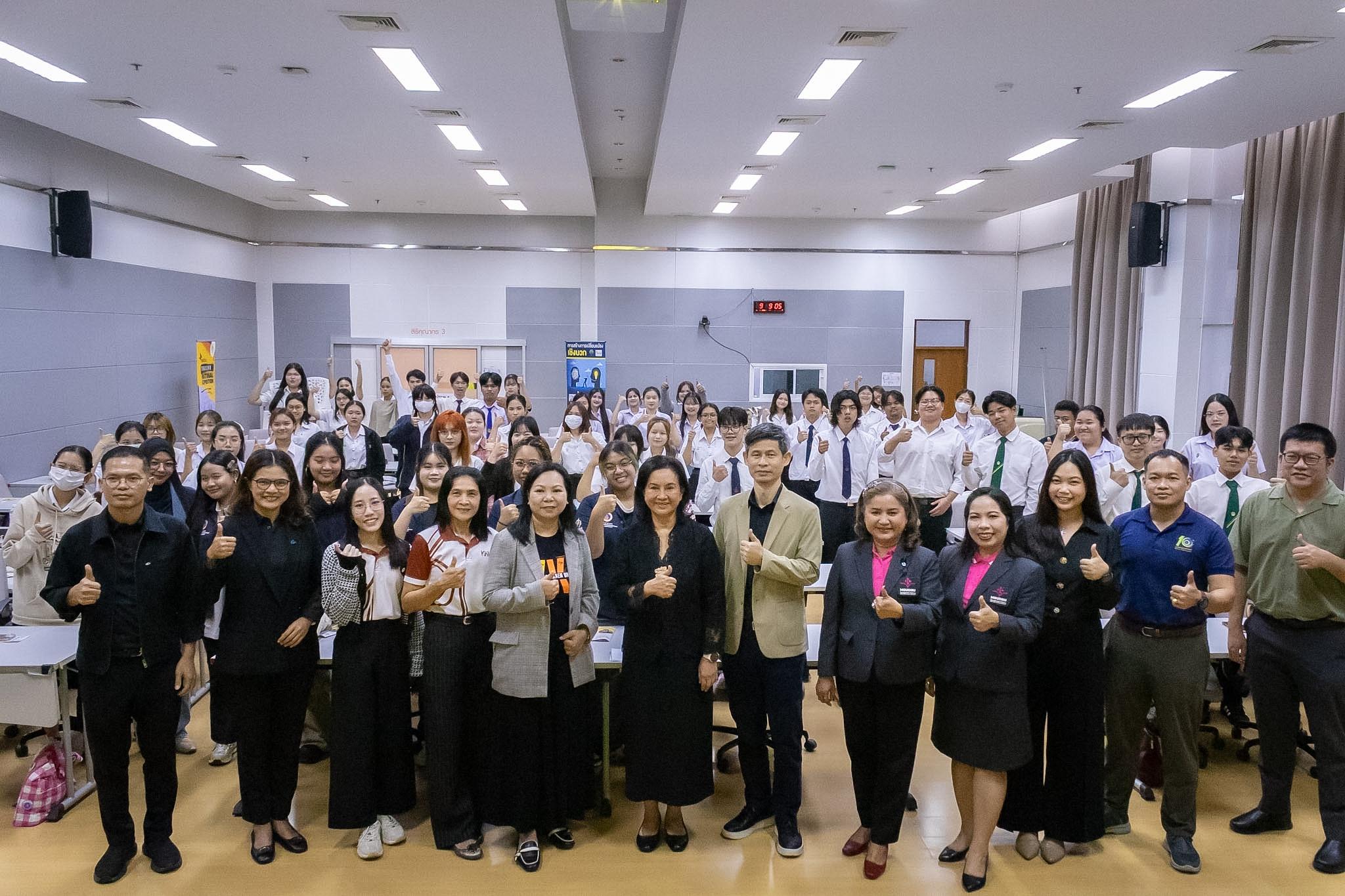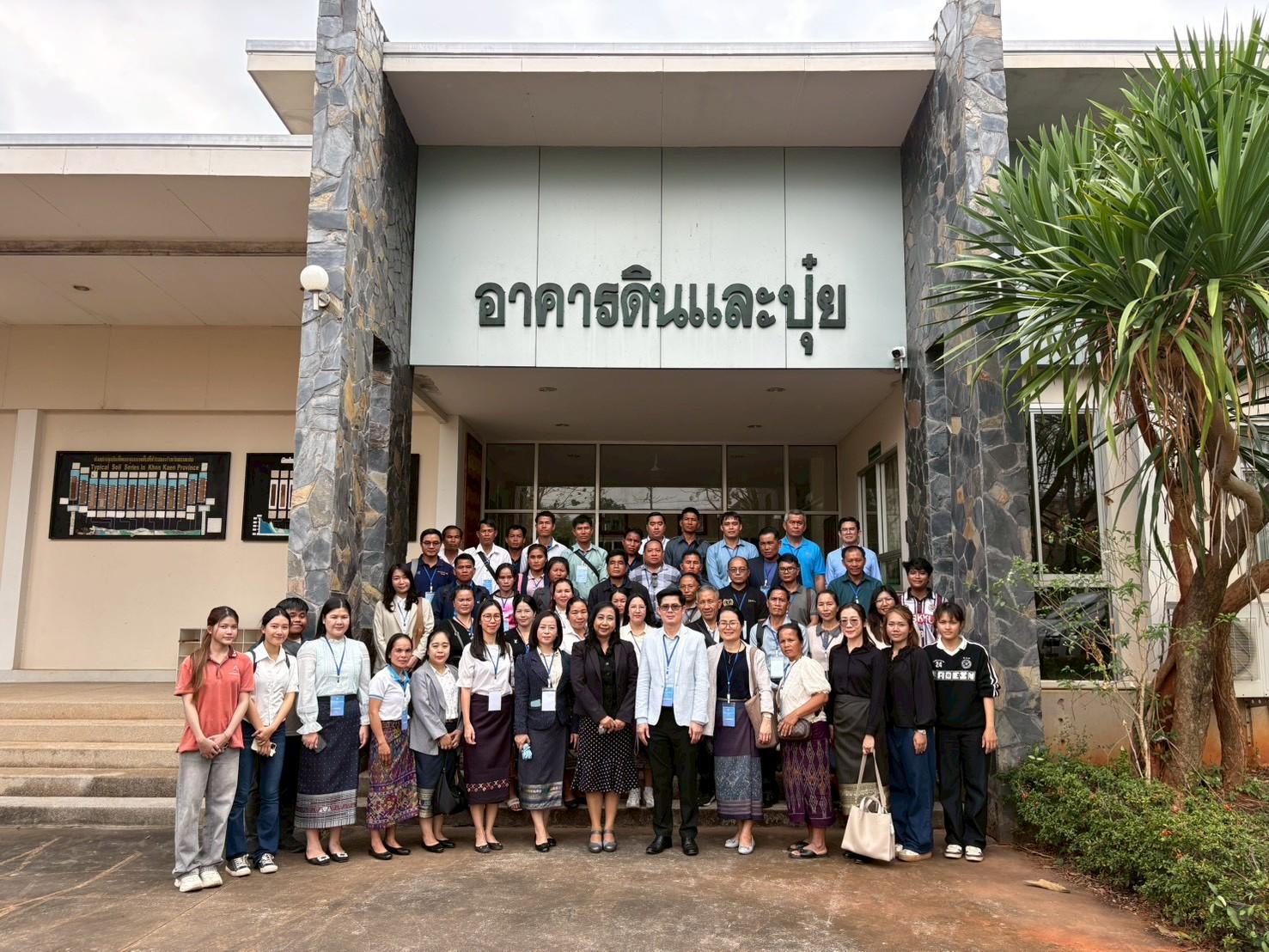As Thailand and the world face the pressing issues of global warming and greenhouse gas (GHG) emissions, resulting in extreme weather and severe climate change, global efforts are converging toward the Net Zero Emission goal. Thailand has prioritised the Bio-Circular-Green (BCG) Economy as a national agenda and set a target to achieve Net Zero by 2050 (in 25 years).
In alignment with this national direction, the Innovation and Engineering Service Centre (IENS), Faculty of Engineering, Khon Kaen University (KKU), hosted a forum uniting key stakeholders from the Electricity Generating Authority of Thailand (EGAT), the Department of Agriculture, Wave BCG, the Khon Kaen Provincial Chamber of Commerce, the Khon Kaen Provincial Federation of Thai Industries, and KKU experts. The forum sought to identify challenges and design a comprehensive roadmap towards low-carbon transformation. The initiative underscores the potential of Northeastern Thailand (Isaan) as a strategic foundation for national Net Zero efforts, positioning Khon Kaen as a future hub for green industries.
The event, held at the Auditorium, Khon Kaen University Science Park, on 17 October 2025, attracted a large number of interested participants who listened and exchanged experiences.

EGAT Identifies Two Key Sectors for Urgent Adjustment
Mr. Pongphan Kruaythong, Director of the Power Plant Planning and Development Division, Electricity Generating Authority of Thailand (EGAT), stated that the electricity sector (38%) and the transport sector (32%) account for 70% of the country’s total GHG emissions. Therefore, the national drive must focus on these two sectors.
EGAT employs the ‘3S Framework’:
- Source Transformation: Transitioning from fossil fuels to clean energy (solar, wind, hydrogen, Small Modular Reactors (SMR), and Solid Oxide Fuel Cells (SOFC)).
- Sink & Co-creation: Carbon absorption through afforestation and Carbon Capture and Storage (CCS) technology.
- Support: Establishing mechanisms such as Carbon Neutral certification.


Mr. Kruaythong believes Khon Kaen Province has high potential to become a “Green Industry Hub.” It has the second-highest electricity demand in the Northeast, is centrally located connecting Khon Kaen, Nakhon Ratchasima, Udon Thani, and Nong Khai, and can meet 100% of its demand using regional renewable energy sources. EGAT plans to develop the Chulabhorn Dam hydropower plant, floating solar farms, wind turbines, and hydrogen/SOFC generation. These developments present opportunities to attract RE100 investors, but urgent measures are needed to address challenges related to energy security, electricity costs, and legal limitations.

Agricultural Sector Focuses on ‘No Burning’ and Carbon Credit Development
The Ministry of Agriculture and Cooperatives reported that agriculture is the heart of the Isaan region. The Ministry has established a new division to develop technology for reducing GHG emissions in the agricultural sector, focusing on the 3R policy (“No Burning”) to tackle agricultural burning and forest fires. Other initiatives include the GAP Plus PM2.5 standard (piloted for coffee and other Northern cash crops), training personnel to be measurement and certification units for agricultural projects, certifying burn-free produce, developing carbon credit accumulation models, and promoting increased income generation from carbon credit accumulation in cash crops (e.g., rice, cassava, and rubber).

Private Sector Emphasises Decarbonisation Roadmap
Ms. Panita Sutakhet, Climate Advisor at Wave BCG, discussed the firm’s role as a consultant in developing Decarbonisation Roadmaps. She highlighted their commitment to supporting BCG and Net Zero strategies across various sectors, especially providing counsel to senior executives (CFOs and Managing Directors) on carbon governance and carbon credit certification.
Tools and mechanisms employed include Afforestation/Reforestation, Energy Efficiency, and developing the Carbon Credit Trading market. Operations are framed by the draft Climate Change Act (covering 14 categories) towards set targets: a 20% reduction in GHG by 2030, with a high ambition target of a 40% reduction by 2030 (with international support).

SMEs: Turning Crisis into Opportunity
Mr. Thirasak Suwantharn, Vice Chairman of the Khon Kaen Federation of Thai Industries, acknowledged the limitations faced by SMEs regarding capital and knowledge. While major industrial players are mandated to adapt to low-carbon practices due to legislation and trade measures (such as the Carbon Border Adjustment Mechanism (CBAM)), SMEs struggle with the initial investment and know-how.
Mr. Suwantharn suggested a shift in mindset: instead of focusing immediately on “Zero Carbon,” enterprises should prioritise “Efficiency Improvement,” reducing waste, and lowering production costs before integrating alternative energy technologies. Crucially, the Net Zero transition must consider the cost-effectiveness for entrepreneurs first and seek opportunities to leverage Isaan’s renewable energy strengths for industrial advancement.

Business Sector Sees Opportunity in CBAM
Mr. Pornchai Saelim, Vice President of the Khon Kaen Provincial Chamber of Commerce, addressed trade pressures, noting that entrepreneurs face constraints from trade partners, especially in export markets (the European Union/CBAM), where measures add 4–7% to costs, impacting grassroots SMEs.
The Chamber of Commerce has reoriented its focus to encourage entrepreneurs (especially SMEs) to begin Net Zero planning to build brand value and prepare for the insights of modern consumers who prioritise environmental sustainability. They advocate for new business models focused on developing a circular economy (Wasteless Economy) and generating income from Carbon Business. The Chamber is currently studying carbon credit trading models and promoting economic tree planting on vacant land to create long-term value from carbon and regional development (over 3, 5, and 7 years).

KKU Pilots Net Zero Target by 2040
Mr. Wachara Pattanavivattporn, Acting Director of the Division of Physical Plant and Operations and KKU Representative, outlined the university’s commitment. Khon Kaen University has set a goal to achieve Net Zero by 2040, ahead of the national target. The strategy relies on knowledge, not just capital, driven by academics across all disciplines, research students, multi-sector Memorandums of Understanding (MOUs), and collaboration with three regional university groups (KKU, Prince of Songkla University, and Chiang Mai University).
KKU’s plan includes six strategies focusing on:
- Renewable Energy: Piloting a 30 MW solar farm on 2,000 rai of vacant land.
- Building Improvement: Upgrading buildings for energy efficiency.
- Green Logistics: Managing traffic and implementing green transportation.
- Carbon Sink Enhancement: Utilising KKU’s extensive 1,500 rai of green space as a primary carbon sink.
- Waste Management.
- Wastewater Treatment Systems.
Mr. Pattanavivattporn emphasised the core concept: “Start with the easy steps” and utilise knowledge as the driving force. He concluded that KKU, resembling a miniature city, is perfectly positioned to serve as a “small-scale model” for piloting Net Zero measures before expanding them to major cities in the region.
This collective effort led by KKU marks a proactive beginning in the Northeast’s response to the global warming agenda. By fostering synergy between the government, the private sector, and academia, the initiative aims to create a tangible roadmap that will not only reduce greenhouse gases but also unlock new economic opportunities and establish a long-term trade advantage for the region.
ข่าวที่เกี่ยวข้อง
ข่าว: เบญจมาภรณ์ มามุข
ภาพ: กองสื่อสารองค์กร

